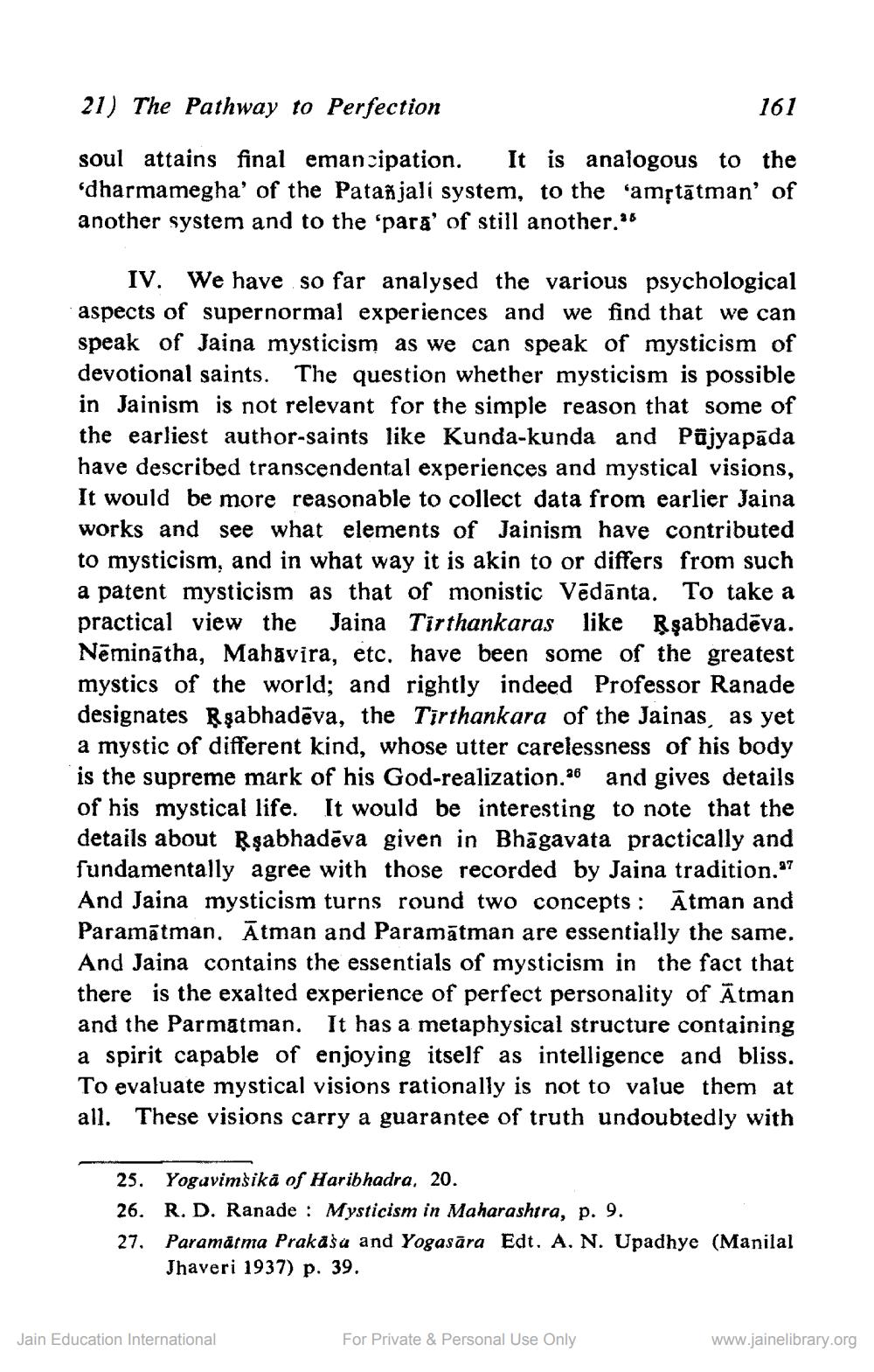________________
21) The Pathway to Perfection
161
soul attains final emancipation. It is analogous to the 'dharmamegha' of the Patañjali system, to the 'amặtātman' of another system and to the 'para' of still another.36
IV. We have so far analysed the various psychological aspects of supernormal experiences and we find that we can speak of Jaina mysticism as we can speak of mysticism of devotional saints. The question whether mysticism is possible in Jainism is not relevant for the simple reason that some of the earliest author-saints like Kunda-kunda and Pajyapada have described transcendental experiences and mystical visions, It would be more reasonable to collect data from earlier Jaina works and see what elements of Jainism have contributed to mysticism, and in what way it is akin to or differs from such a patent mysticism as that of monistic Vēdānta. To take a practical view the Jaina Tirthankaras like Rşabhadēva. Nēminātha, Mahavira, etc. have been some of the greatest mystics of the world; and rightly indeed Professor Ranade designates Rşabhadēva, the Tirthankara of the Jainas, as yet a mystic of different kind, whose utter carelessness of his body is the supreme mark of his God-realization.26 and gives details of his mystical life. It would be interesting to note that the details about Rşabhadēva given in Bhāgavata practically and fundamentally agree with those recorded by Jaina tradition.97 And Jaina mysticism turns round two concepts: Ātman and Paramātman. Ātman and Paramātman are essentially the same. And Jaina contains the essentials of mysticism in the fact that there is the exalted experience of perfect personality of Ātman and the Parmatman. It has a metaphysical structure containing a spirit capable of enjoying itself as intelligence and bliss. To evaluate mystical visions rationally is not to value them at all. These visions carry a guarantee of truth undoubtedly with
25. Yogavimšika of Haribhadra, 20. 26. R. D. Ranade : Mysticism in Maharashtra, p. 9. 27. Paramātma Prakasa and Yogasāra Edt. A. N. Upadhye (Manilal
Jhaveri 1937) p. 39.
Jain Education International
For Private & Personal Use Only
www.jainelibrary.org




